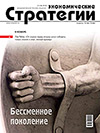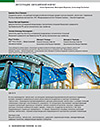“Soft Power” Like an Effective Tool of Foreign Policy Influence in Conditions of Transition to Multipolarity
The article analyzes “soft power” as an instrument for implementing foreign policy strategy in modern conditions; a comparative analysis of the impact of the “soft power” components on the electorate is made; the author analyzes opposite directions of the goal-setting vectors of “soft power” in conditions of total globalization and transition to multipolarity; it is stated that polycentrism determines the self-identification of societies and realization of national interests, the existence and development of historical, linguistic, traditional cultural and ethnic characteristics of nations and peoples, as well as the role of the state as an institution, maintaining social justice, which gives a definite specificity to the mechanism of implementing the “soft power” policy; the article also reflects the increasing role of information space in the context of globalization.



